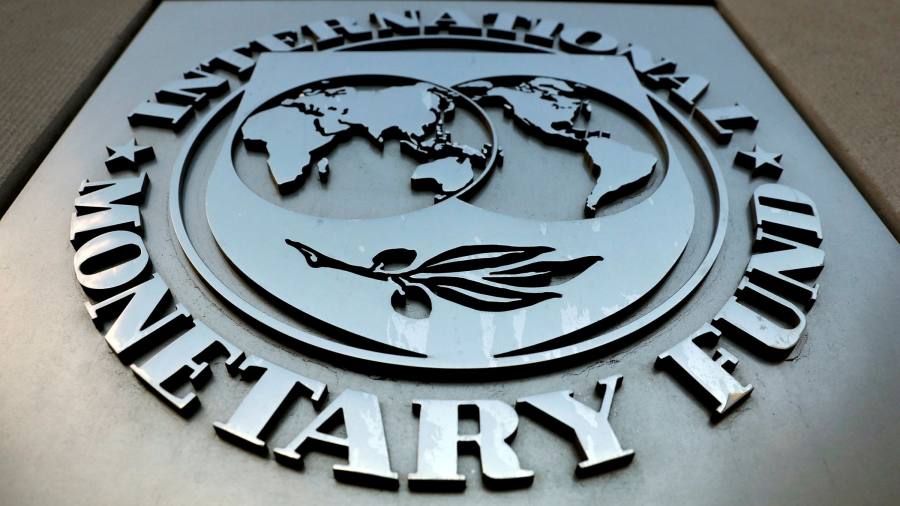Kevin P. Gallagher is Professor and Director of the Global Development Policy Center at the Pardee School of Global Studies at Boston University. He is co-chair of the Think 20 working group on G20 Italy’s international finance for 2021. In this article, he argues that the IMF’s current mechanism to add surcharges to the debt interest charges on its loans should be dropped for help the world economic recovery.
The most important function of the IMF is to provide emergency financing to countries in economic difficulty which are unable to pay their creditors. In response to the COVID-19 pandemic, the IMF has already approved 119 programs in 85 countries at a cost of more than $ 100 billion.
But, at the end of the day, countries most in need of the IMF will have to pay more than $ 4 billion in additional surcharges on top of interest payments and fees from the onset of the crisis until the end of 2022. In addition, the IMF estimates surcharges have become the main source of income for the Fund, accounting for almost half of income during this period. At the same time, developing countries need every penny they can muster to fight the virus, protect vulnerable people, and build inclusive and green recovery. Something has gone horribly wrong with politics.
The Covid pandemic triggered the worst economic recession since the Great Depression. The World Bank estimates that more than 124 million people were pushed into extreme poverty in 2020, with 8 in 10 of these newly poor living in middle-income countries. The federal debt is a particularly acute problem here. For example, in Nigeria, more than 50 percent government revenues are used to repay international debts rather than to fight the virus.
The Latin America and the Caribbean region has been one of the hardest hit, with more than 500,000 deaths and an economic downturn of 7.7 percent in 2020. In per capita terms, the region has been reduced to 2010 levels, effectively causing another lost decade. The United Nations estimates that many countries in the region devote 30 to 70% of reduced government revenues to payment of creditors.
Even though middle-income countries are among the hardest hit, the G20’s new architecture to help countries alleviate debt distress – the Debt Service Suspension Initiative and the Common Framework – does not grant the suspension and l debt relief only to low-income countries. In addition, the G20 arrangements only apply to official bilateral creditors such as Paris Club members and China, although two-thirds of middle-income country debt is held in international financial institutions such as the IMF.
Supplements work in two ways. One relates to the amount of the emergency loan (based on level) and the other on the duration of the loan (based on time). Level surcharges are fixed at 200 basis points on outstanding loans above 187.5 percent of IMF quota allocated. Time surcharges are an additional 100 basis points when IMF credit has been outstanding for more than 36 to 51 months, depending on the structure of the program. These surcharges can often lead to debt costs of up to three times.
Currently, 30 percent of IMF-financed countries face surcharges amid the crisis, including Angola, Argentina and Georgia. And others should start paying. It’s just when many middle-income countries still do not have access to vaccines and will continue to suffer the health, economic and financial hardships of the crisis.
These surcharges have been the subject of tense discussions dating back to their origins, when they were first imposed after the Asian financial crisis of the late 1990s. The logic behind them is to limit demand for IMF programs, encourage borrowers to repay earlier than expected, and generate income for the IMF.
Of course, it is important for member countries not to depend too much on the IMF for liquidity, but regressive and pro-cyclical surcharges are not the way to create such incentives in a context of global economic crisis.
The unintended consequences are twofold. First, surtaxes disproportionately affect middle-income countries with lower quotas which by definition need both large IMF funding to repay and longer repayment periods to recover from crises. Second, they require borrowing members to pay more exactly when they are most deprived of market access in any other form.
A better way to ensure that countries do not turn to the IMF for larger, longer-term loans is to improve the design of programs and advice so that countries can recover from crises more quickly. In addition, a new allocation of quotas correctly distributed is necessary.
Immediately, however, the IMF should suspend these surcharges to help countries recover from the virus and to prompt the IMF to rethink its broken business model.

